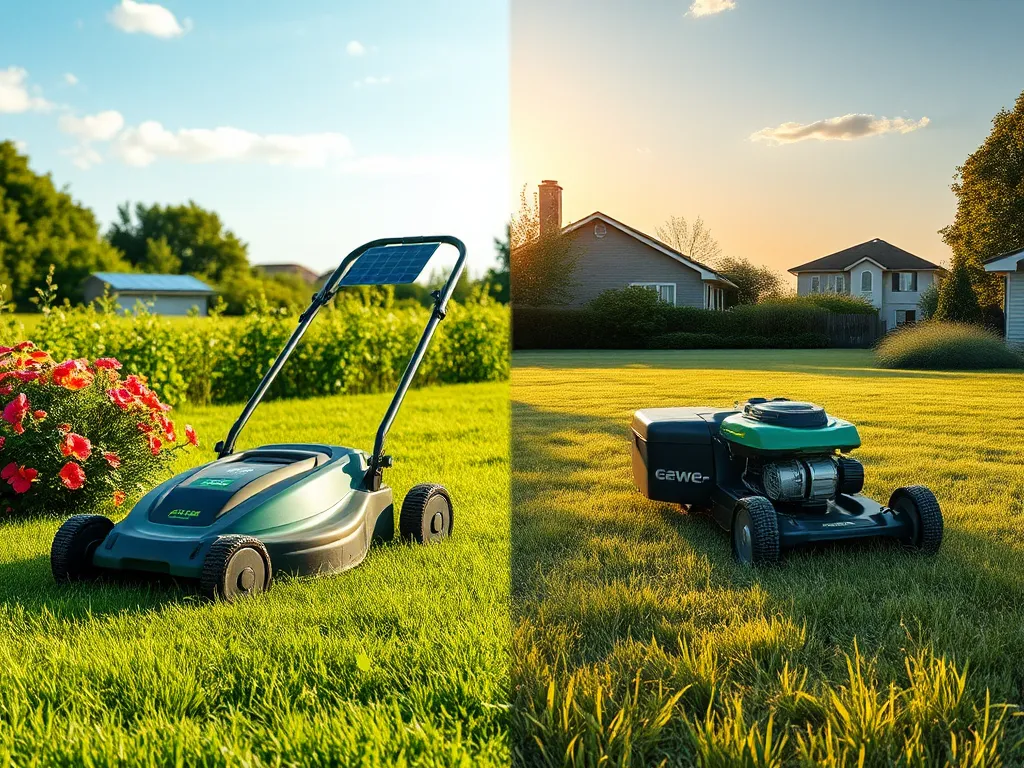Electric vs Gas Lawn Mowers: Pros and Cons Explained

The Comprehensive Guide to Lawn Mowers
Lawn Mowers are essential tools for maintaining a healthy and aesthetically pleasing lawn. Whether you have a small backyard or a sprawling estate, understanding the different types of lawn mowers available and their functionalities is crucial for any homeowner. From traditional push mowers to advanced robotic models, the diversity in design and technology offers options for every preference and need.
When it comes to choosing the right lawn mower, consumers often must navigate between two primary categories: gas-powered and electric mowers. Both types come with unique advantages and disadvantages. For instance, gas mowers tend to provide greater power and longer runtime, making them suitable for larger lawns, whereas electric mowers are known for their quieter operation and lower maintenance needs. Understanding these differences can help you make an informed decision based on your specific lawn care requirements.
utilizing a cordless mower benefits homeowners by providing a quieter and more environmentally friendly way to maintain their lawns.
Another crucial aspect to consider is the cutting efficiency that different lawn mowers offer. Factors such as blade design, height adjustment capabilities, and cutting speed can all impact how effectively your mower performs. Additionally, weather and terrain conditions also play a significant role in the performance of lawn mowers. By analyzing these characteristics, you can optimize your lawn care routine and ensure a consistently manicured lawn.
Lawn mowers also come equipped with various features, including mulching capabilities, bagging options, and smart technology integrations. Whether you prefer a no-frills mower that simply gets the job done or a high-tech model that allows you to program mowing schedules remotely, today's market has something for everyone. As you delve into the world of lawn mowers, you'll find that advancements in technology have significantly improved their efficiency and effectiveness.
In conclusion, lawn mowers are more than just tools; they are an investment in the beauty and health of your outdoor spaces. By taking the time to choose the right model that aligns with your lawn care objectives and understanding how to operate and maintain it, you can enjoy a lush, green lawn all year round.
Performance Comparison
When comparing electric and gas mowers, one primary performance metric is power output. Gas mowers generally provide superior power, making them ideal for larger, thicker grass and uneven terrains. In contrast, electric mowers offer sufficient power for smaller yards, with many models featuring brushless motors that enhance efficiency and reduce wear over time.
Cutting efficiency is another critical aspect. Gas mowers excel in diverse conditions, performing well in various grasses and heights. Meanwhile, electric mowers may struggle in wetter conditions due to their lightweight build but can handle moderate trims effectively. Factors such as blade sharpness and mower height adjustments significantly influence overall performance in both types.
the gas mower power is unmatched for tackling thick grass and uneven terrain, making it a favorite among professional landscapers.
Speed and handling between electric and gas mowers can vary noticeably. Gas mowers provide more speed and maneuverability, which is beneficial for large or complex lawns. Electric mowers may offer quieter operation and are generally easier to handle, particularly in tight spaces, but they might lack the agility and speed of their gas counterparts.
maximizing lawn mower efficiency not only saves time but also ensures that your yard remains healthy and well-manicured throughout the season.
Cost Analysis
The initial purchase price is a decisive factor for many consumers. Electric mowers often come at a lower price point compared to gas mowers, making them an attractive option for budget-conscious buyers. However, more advanced electric models with advanced features can escalate costs significantly. Gas mowers vary widely in price based on their power, brand, and technology.
Long-term maintenance costs are an essential consideration when choosing between the two. Electric mowers typically incur lower ongoing costs due to minimal maintenance needs and fewer replacement parts. Conversely, gas mowers require regular oil changes, air filter replacements, and other maintenance that can add up over time.
Fuel and electricity costs also factor into the total expenditure. While electric mowers operate on standard electricity rates, gas mowers necessitate purchasing fuel, which can fluctuate based on market conditions. Over time, the operational costs of electric mowers may prove to be more economical for most homeowners.
Environmental Impact
One of the most significant distinctions between gas and electric mowers is their carbon footprint. Gas mowers contribute to greenhouse gas emissions, which can impact air quality and climate change. Electric mowers are considered more environmentally friendly, especially when powered by renewable energy sources.
Noise pollution is another factor to consider. Electric mowers operate more quietly than gas mowers, making them ideal for suburban areas where noise restrictions may apply. This aspect also leads to less disturbance of wildlife and neighbors during mowing hours.
Eco-friendly options are increasingly becoming available. Some brands offer electric mowers that are designed with sustainable materials and energy-saving technologies. Additionally, many consumers are turning towards battery-operated models, which further reduce their environmental impact.
User Convenience
Ease of use is a significant advantage of electric mowers. Without the need for gasoline and oil, electric models are generally easier to start and operate. Most electric models come with simple push-button starts and low-maintenance requirements, appealing to novice users and seasoned landscapers alike.
Portability and weight also vary between mower types. Electric mowers are typically lighter, making them more manageable for users who may struggle with heavier equipment. However, the weight of the mower can also impact traction and effectiveness, especially in uneven terrain.
Storage requirements can also differ. Electric mowers usually require less space as they don't have gas tanks or heavy engines. However, owners of electric models must consider battery storage and charging conditions, which can complicate storage for some users.
Longevity and Reliability
The durability of electric versus gas mowers varies by brand and model. Gas mowers have a reputation for longevity, particularly in heavy-duty applications. However, high-quality electric mowers are becoming increasingly reliable, with some brands offering materials that exceed the durability of many gas models.
Warranty and lifespan expectations can significantly influence purchasing decisions. Gas mowers often come with longer warranties, reflecting their traditional reputation for reliability, but advancements in electric mower technology are leading manufacturers to offer competitive warranties, supporting the consumer confidence in electric options.
Repair rates and common issues can differ as well. Gas mowers may encounter more mechanical issues due to their complex engines, while electric mowers face fewer operational headaches, mainly related to battery life and electrical components. Overall, users are likely to experience significant satisfaction from regular use of either mower type.
